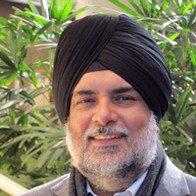Dear Reader
Much has been said about Smart Cities that India is developing and numerous symposiums have discussed related issues back and forth frequently. However, if one was to look for a universally acceptable definition of “Smart Cities’, one would be at a loss, as there is no universally accepted definition of a Smart City. It means different things to different people. The conceptualisation of Smart City, therefore, varies from city to city and country to country, depending on the level of development, willingness to change and reform, resources and aspirations of the city residents. A smart city would have a different connotation in India than, say, in Europe. Even in India, there is no one way of defining a smart city.
A smart city is an urban development vision to integrate information and communication technology (ICT) and Internet of Things (IoT) technology in a secure fashion to manage a city’s assets. These assets include local departments’ information systems, schools, libraries, transportation systems, hospitals, power plants, water supply networks, waste management, law enforcement, and other community services. The smart city concept uses technology to connect people with their environment and city to create more efficient and optimal relationships between available resources, technology, community services, and events in the urban fabric.
The most important aspect is that the citizens who live and work in these cities must be integral to the implementation process as well. The success of the mission is firmly vested in smart citizens, if the people of a city themselves do not evolve and become smart to interface with and leverage the benefits of the technological upgradations, then that city can never become really smart! Making citizens smart comprises of various participatory processes of connecting data, people and knowledge. In simple terms a smart citizen is one who has civic sense, respects the law, and is willing and capable of leveraging technology to enhance his life and civic experience.
Most developed cities ensure that citizens participate in every aspect, from cleaning to safety requirements. Citizen participation ensures citizen satisfaction, which in turn ensures maximum efficiency of the proposed technology. In an increasingly complex world, citizens’ inputs are a critical resource for policy-making. Good decision-making requires inputs taken from the knowledge, experiences, views and values of the public. The participation of citizens has become simpler through online government portals.
In theory this sounds very nice, but ground realities can be very different. In 2012, a report by the Planning Commission of India (Tendulkar Committee) stated that 26% of all people in India fall below the international poverty line of per capita income of US$ 1.25 per day. In a country where millions of people still do not have access to clean drinking water, electricity, basic sanitation, fundamental education, a livelihood, and where they do not know where their next square meal is going to come from, it is indeed highly ambitious to dream and talk about citizens who will be able to experience good governance via smart phones!
I am not for a moment implying that we should not attempt creating smart cities, however, like I said before the definition of ‘smart’ in India could actually turn out to be very different from Europe or Japan. Smart could actually mean, an ecosystem where a citizen could receive an SMS telling them when the next round of water supply would become available in the community taps or after an outage, when the electric supply would be restored!
India is projected to be the world’s most populous country by 2022, surpassing the population of China. India has more than 50% of its population below the age of 25 and more than 65% below the age of 35. It is expected that, in 2020, the average age of an Indian will be 29 years. With stretched resources and increasing technology driven automation, job opportunities are likely to be impacted. In that event, all indicators point towards a rise in crime. It is only a professional technology enabled and data driven law enforcement with a speedy justice system set up that could be expected to curb this looming menace. Therefore, it is imperative that the government focuses on implementing policies that ensure the creation of such a public security mechanism, within the context of smart cities.
Wishing you all a very happy Independence Day, till we meet next month, Cheers and Happy Reading.
G B Singh
Email: editor@securitytoday.in
Follow me on @EditorGB
Connect with me on Linkedin






